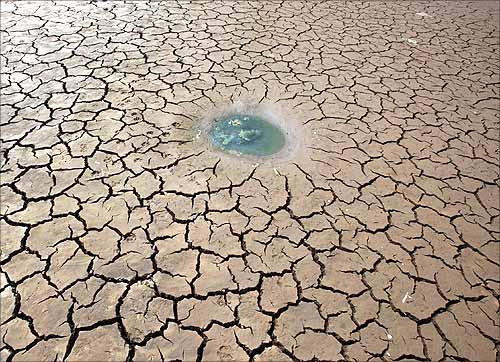
In the last 100 years, the earth's average surface temperature rose by about 0.8 degree Celsius with about two thirds of the increase occurring over just the last three decades.
Most of the greenhouse gases are a result of human activities such as deforestation and burning fossil fuels.
An increase in global temperature will cause sea levels to rise, resulting in large scale destruction.
Global warming will lead to frequent bouts of extreme weather conditions including heat waves, droughts and heavy rainfall, extinction of several species due to shift in temperatures.
Click NEXT to see alarming signs of global warming across the world...

Local residents crowd a swimming pool during a hot weather in Suining, China.
Click NEXT to read more...
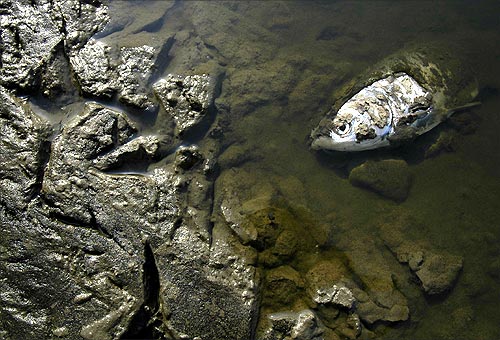
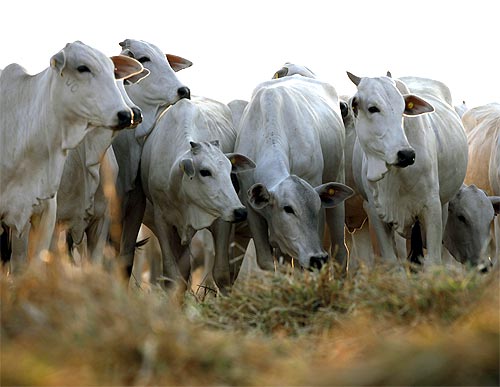
Brazil, with its chronic social inequalities, relied on homesteading until the last decade to populate and secure its vast, United States-sized interior.
Unbridled expansionist policies eventually brought environmental and trade pressure to a head in the last decade, on fears the Amazon would be lost, hastening global warming.
The government's efforts to rein in agriculture also threaten to derail the very investments needed by farmers to keep yields improving in existing areas and for orderly, legal expansion.
Click NEXT to read more...
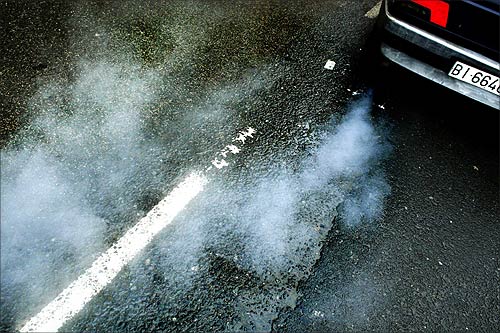
A car produces smoke from its exhaust as it pulls away in Guernica, Spain.
Click NEXT to read more...
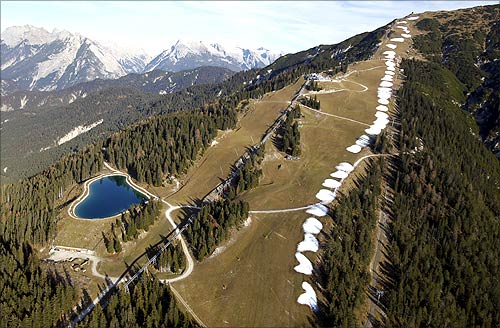
An aerial view shows snowless slopes on the Rosshuette mountain in the western Austrian village of Seefeld.
Click NEXT to read more...

Each labourer earns $10 on an average working day. Most of them come from the northern provinces, leaving their families behind in search of fortune in Afghanistan's capital city, Kabul.
Click NEXT to read more...
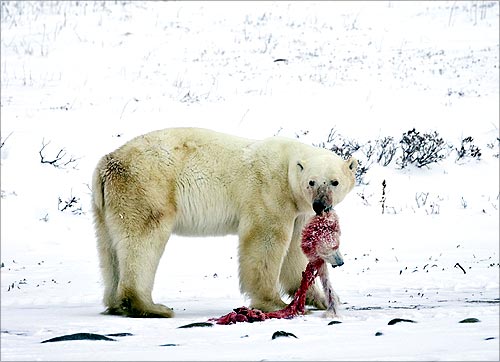
Climate change has turned some polar bears into cannibals as global warming melts their Arctic ice hunting grounds, reducing the polar bear population, according to a US-led global scientific study on the impacts of climate change.
Click NEXT to read more...
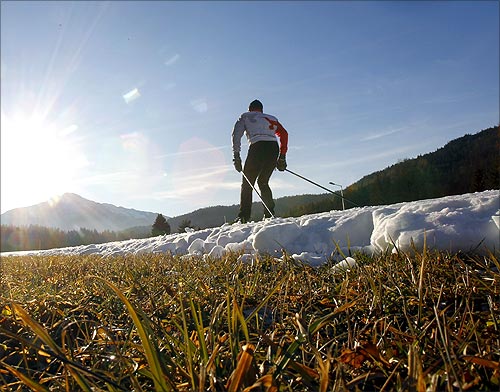
A cross country skier uses an artificial snow track in the western Austrian village of Seefeld.
Click NEXT to read more...
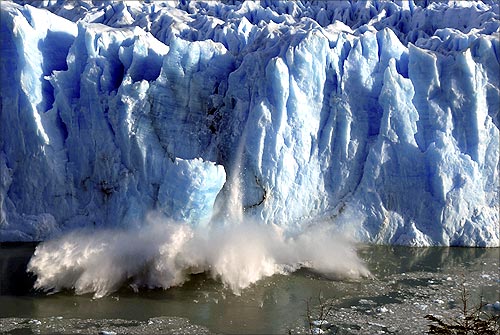
Splinters of ice peel off from one of the sides of the Perito Moreno glacier in a process of a unexpected rupture during the southern hemisphere's winter months, near the city of El Calafate in the Patagonian province of Santa Cruz, southern Argentina.
Dumping iron dust in the seas or placing smoke and mirrors in the sky to dim the sun could help a world struggling to curb global warming, according to backers of extreme technologies.
Click NEXT to read more...

A stubborn wildfire in eastern Arizona forced the evacuation of as many as 3,000 people flared out of control for 10 days and advanced on two more mountain towns near New Mexico.
Fire officials said the so-called Wallow Fire had charred more than 311,000 acres (126,000 hectares).
Click NEXT to read more...
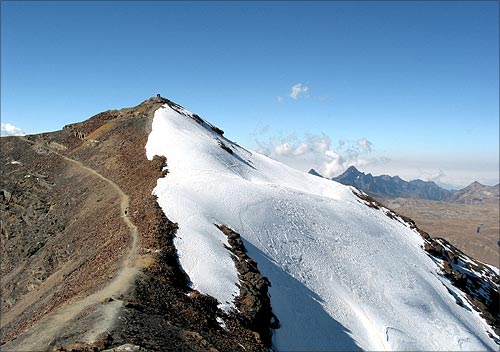
According to scientists studying the receding glaciers in the Andean Cordillera, the ice cap that attracts hundreds of tourists each year from all over the world to ski on will disappear in less than five years, probably due to global warming and as a consequence of the El Nino phenomenon.
Click NEXT to read more...
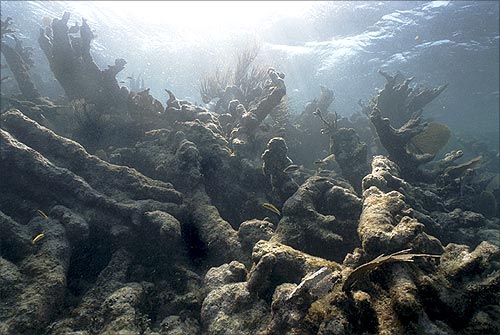
Much of the 200 miles (320 km) of Belize's coral reef has been "bleached" in the last decade and some scientists warn it is likely to die, a victim of global warming.
Click NEXT to read more...

China's State Forestry Administration has blasted local authorities and private companies for flouting the law by chopping down forests to make way for new transport links, Xinhua News Agency reported.
Click NEXT to read more...

Indonesia and Australia launched a A$30 million project to fight deforestation in Sumatra as part of efforts to cut greenhouse gas emissions and boost a planned forest-carbon trading scheme on March this year.
Indonesia, like Brazil, is on the front line of efforts to curb deforestation that is a major contributor to mankind's greenhouse gas emissions that scientists blame for heating up the planet.
Click NEXT to read more...
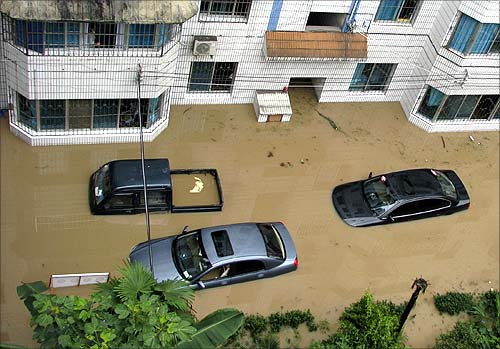
Deaths from floods, lightning and landslides across China this summer reached nearly 700, with experts warning that global warming is likely to fuel more violent weather.
Click NEXT to read more...
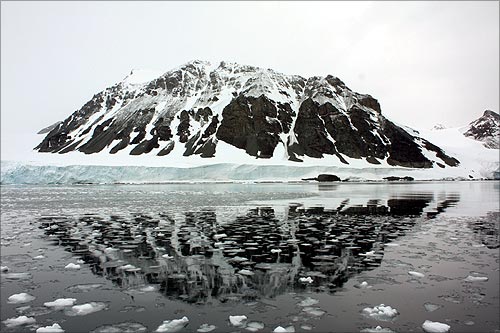
The glacier has shrunk by about 2 km since 1989, probably because of global warming.
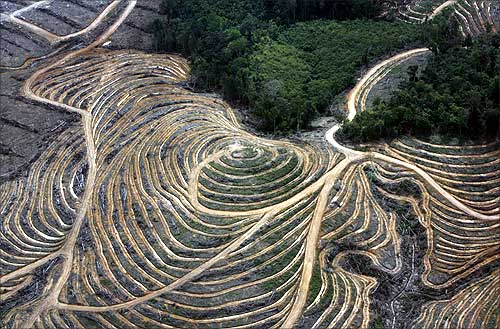
The photograph was taken as part of a media trip organised by conservationist group Greenpeace, which has campaigned against palm oil expansion in forested areas in Indonesia.
Click NEXT to read more...
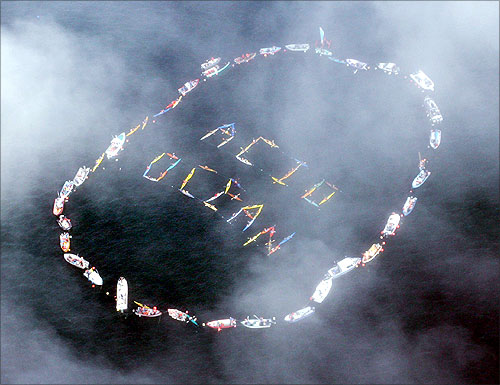
Over a hundred boats and hundreds of members of the fishing community participated in the event.
Click NEXT to read more...
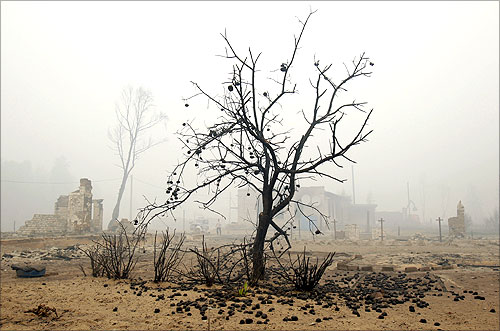
Forest and peat fires by the highest temperatures ever registered in Russia have killed at least 52 people, made more than 4,000 homeless, diverted many flights and forced Muscovites to wear surgical masks to filter out foul air.
Click NEXT to read more...
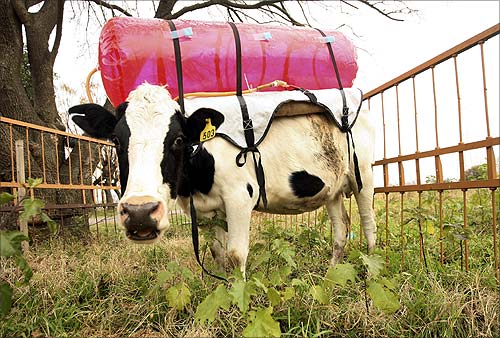
Argentine scientists are taking a novel approach to studying global warming, strapping plastic tanks to the backs of cows to collect their burps.
Researchers say the slow digestive system of cows makes them a producer of methane, a potent greenhouse gas that gets far less public attention than carbon dioxide in efforts to fight global warming.
Click NEXT to read more...
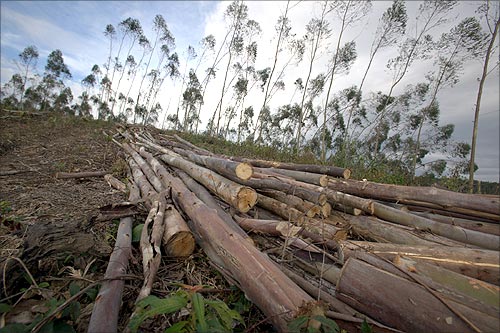
According to a Greenpeace study, Hainan province's rainforests, home to the Hainan gibbon, the world's rarest primate with just 23 believed to be remaining in the wild, have been disappearing at a rate of around 400,000 square meters every two days for the past ten years because of illegal logging and plantation establishment.
Click NEXT to read more...

World's second biggest solar power plant and Germany's biggest, with an area of 162 hectares (equivalent to more than 210 football fields) in Turnow-Preilack, about 150 km (93 miles) southeast of Berlin, Germany.
Click NEXT to read more...
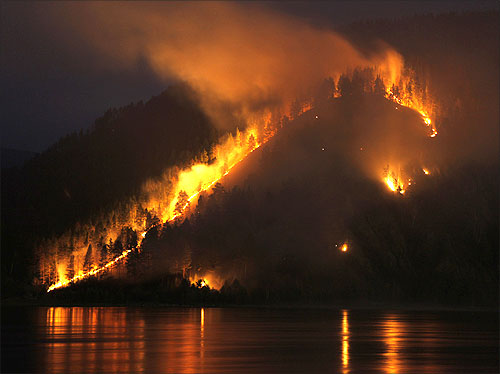
Russia faces a danger of forest fires in Siberia and its far east, following blazes that ravaged thousands of hectares of land last years.
Click NEXT to read more...

Steam billowing from the cooling towers of Vattenfall's Jaenschwalde brown coal power station is reflected in the water of a lake near Cottbus, eastern Germany.
Click NEXT to read more...
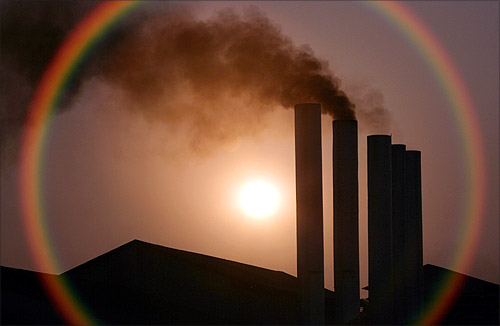
The Intergovernmental Panel A on Climate Change (IPCC) study projects a big rise in temperatures this century and warns of more heatwaves, floods, droughts and rising sea levels linked to greenhouses gases released mainly by the use of fossil fuels.
Click NEXT to read more...

A labourer works at a coking plant in Changzhi, north China's Shanxi province.
Click NEXT to read more...
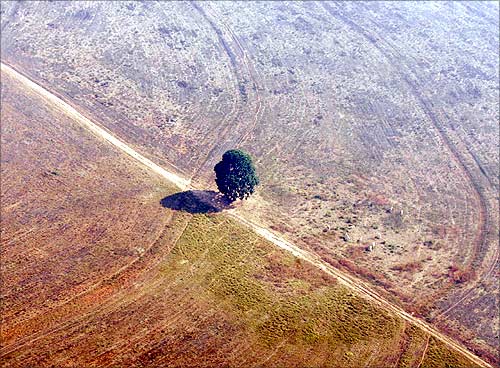
The Amazon is home to up to 30 per cent of the planet's animal and plant species.
Click NEXT to read more...
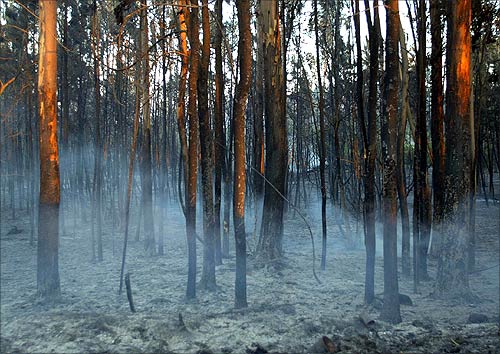
Paying landowners to let forests grow is promoted by the United Nations as a viable way to fight global warming, but experts first have to puzzle out how to insure trees against going up in smoke.
Under UN plans, owners will get carbon credits to slow the destruction of tropical forests. But fires caused by lightning -- along with other hazards such as storms, insects and illegal logging -- are a big risk for insurers and investors.
Click NEXT to read more....

The message, which was to call on humanity to be in harmony with the natural world, was created on the final day of the three-day Belize Reef Summit and is part of the launch of the Harmony Initiative, a partnership between the film Harmony narrated by Britain's Prince Charles and the Global Campaign for Climate Action.